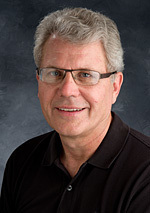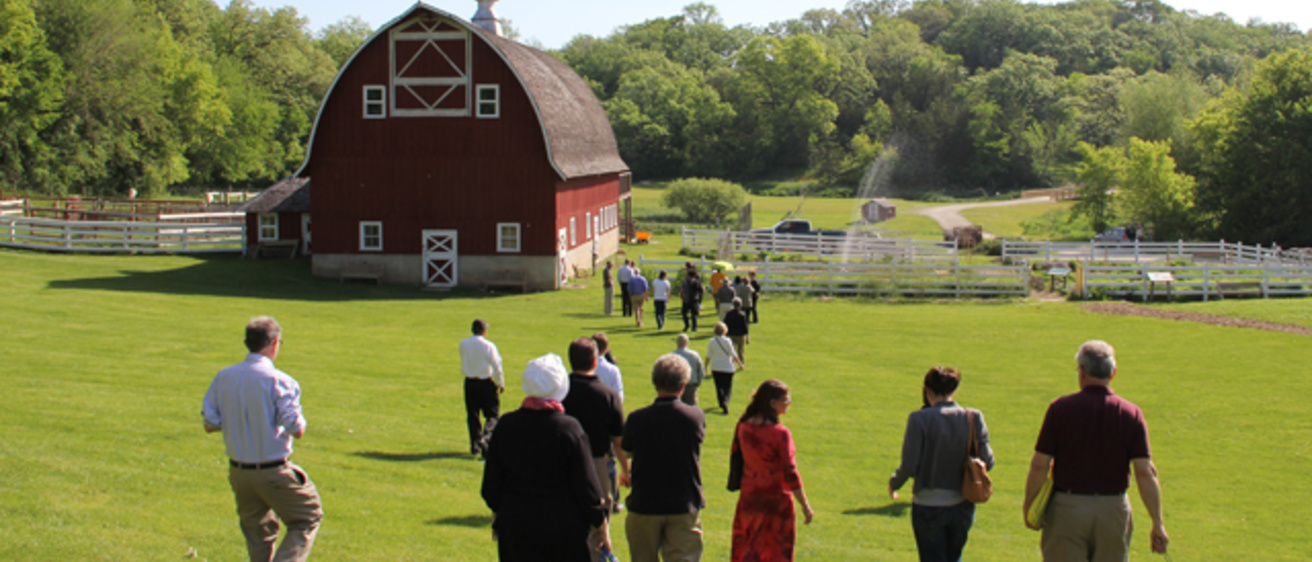As faculty, few of us go to the small towns where our students come from, or see the schools they attend, or meet the mayors of their towns, or tour the factories where Iowans work.

But every spring, a small group of faculty sets out to see Iowa through the eyes of folks outside Iowa City. We travel by bus for three days, meeting with a wide variety of Iowans and listening to their stories of triumph and challenge. This is the Faculty Engagement Corps, and though we can’t quite predict what will happen along the way, we know that we will return with new perspective on our state, our students, and our lives as University of Iowa faculty.
The Faculty Engagement Corps is a listening tour. Yes, members can make connections and begin outreach partnerships—I work with many Iowa companies teaching business and technical writing—but the purpose is to listen.
We met dedicated people and talented people and people who feel powerless and people with hope.
This year we saw small Iowa towns trying to reverse the negative effects of declining population as farms grow bigger and small manufacturing companies close. We saw the sophisticated operation of Lifeline, which makes custom-made ambulances for national and even some international clients. We saw West Union try to revive its declining fortunes with innovative sustainable energy and water treatment systems. And we saw the devastation that still affects the minority population (and others) in Waterloo long after good-paying John Deere and Rath Packing jobs left the city.
The Faculty Engagement Corps makes it possible to see Iowa from many perspectives. And it helps that faculty from medicine, geology, anthropology, urban planning, history, biology, nursing, rhetoric—well, colleagues from all across the university in all disciplines—help plan the trip and sit alongside people like me urging me to do my best to understand and put in perspective what I see.
I teach writing, so my visit this year to Waterloo East High School was particularly interesting. The school has many minority and at-risk students. We talked to administrators and then teachers and then students in separate groups and heard very different stories about successes and failures in the school. We learned a lot about how people teach writing and many other subjects, and we learned about the frustrations as well as successes of school reforms. We met dedicated people and talented people and people who feel powerless and people with hope. We could compare our Waterloo East High School experiences with those of community groups and those of the mayor and business leaders whom we met in later meetings.
The trips have taught me a lot about Iowa. I have met interesting colleagues from all parts of the university—people from around the nation and the world. The trips help us stay focused on our university, which is not only in Iowa but of Iowa.
